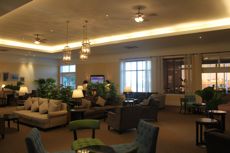The first “scientifically robust national survey” of drug use in the Maldives is kicking off with training for employees and volunteers this week. The survey was contracted by national research organisation Inova Pvt Ltd, in partnership with the Ministry of Health and Family.
The survey examines the drug use habits of Maldivians ages 15 to 64, and is a contributing factor of the program, “Strengthening the National response to Combat Drug Abuse in the Maldives”, which began in July under the remit of the United Nations (UN) and the Maldivian government.
United Nations’ Office on Drugs and Crimes (UNODC), the All Indian Institute and the European Union are providing funding and expertise, and 13 local NGOs are assisting the project, particularly within island communities.
International Project Coordinator for UNODC, Sarah Waller, said the survey would add structure to the Maldivian government’s sparse drug policy.
“The survey should generate a better understanding of where treatment gaps in the community are, in order for the government and civil society to target appropriate evidence-based treatment and interventions in their drug-treatment planning. At the moment, it’s a bit of a guess how services are set up. This will enable to the government to provide a much more targeted response to the issue.”
The survey is being conducted according to two methods.
On islands, ‘enumerators’ employed by Inova will gather and process data by conducting household interviews.
Waller said many enumerators come from the recovering community, and staff from Journey are providing specific training to those who have little to no experience in drug use and abuse.
“Many have likely never interacted in the past with drug users. The first few days of training are about building awareness and sensitisation around drug users, around the Maldives’ treatment systems, and around the patterns and trends of drug abuse here,” Waller said.
Another method will be applied on Male’. Volunteer ‘respondents’ will serve as the middle man, gathering survey participants from Male’s more dense and urban community and connecting with them enumerators.
“The methodology for Male’ is quite different from what is given out on the islands,” said Waller. “The method, Respondent Driven Sampling (RDS), is more appropriate to the community on Male’. This approach identifies initial seeds in the community, and those seeds generate additional seeds. So you’re really generating responses through one initial seed.”
Respondents will be rewarded with coupons according to their efforts gathering participants. Waller emphasised that the compensation had been carefully designed to protect the survey’s validity.
“The evidence base suggests that incentivizing the driving of seeds to identify more individauls to take part in the study can enable a much more representative and accurate sample. When it comes to incentivizing recovering or abusive populations, there are ethics that need to be considered regarding that incentive. In particular with doing research amongs drug users, there have to be ethics whereby monetary incentives aren’t sufficient enough to encourage the workers to use them on drugs.”
Minivan News spoke to Journey volunteer member Imlaaq Shareef about the survey’s methods.
“It’s an advanced form of snowballing. First, the respondents will bring one or two and give a reward, maybe three coupons. Then they’ll bring another three addicts, and get a reward for that. So from one respondent the team will get more and more samples,” said Shareef.
When asked if the survey was likely to be accurate, Shareef doubted that all participants would initially be honest.
“But in the survey there are a lot of recovering addicts who are volunteering, and they’ll be able to identify the community here,” Shareef observed. “This is a small place, so, even the person who is doing drugs the most secretively somehow some people will know about it. So we can reach for them. I think by this survey, we can get a good estimate.”
In Shareef’s opinion, the survey is overdue.
“It should have been done earlier. Day by day, the number of IV users is getting high, and drug users are getting high, the number of sex workers are increasing. And in most cases, sex workers are addicts because it’s the easiest way for a girl addict to get money to buy her drugs. There is no choice for these girls, and most do not enjoy it,” said Shareef.
In addition to having an information shortage, the Maldives is struggling to plug the gaps between drug rehabilitation and law enforcement.
“There are very few rehabilitation service providers here,” said Shareef. “The problem is, once people get out of rehab they have to sign up for community service and stay here for a year or so. If they relapse during that period, it’s a big case. They might end up in court or jail. So most people are afraid of taking a treatment, because of the loopholes in the law.”
Shareef complained that a drug reform bill has been stalled in Parliament.
“Even very recently, at Journey, we put out a petition that was signed by nearly 8,000 people and sent it to the Majlis to pass the drug bill. But they don’t give a damn about it. They are just concerned about the Rf20,000 they are getting. I wonder what kind of risk they are taking,” said Shareef.
Parliament accepted the bill in March 2010 and sent the legislation to committee for further review.
Shareef said the bill would significantly improve drug addicts’ recovery process.
“A user should never end up in jail. It has been scientifically proven that addiction is a chronic brain disease. So why should they end up in jail? It’s a big problem,” Shareef said.
Waller said the survey could provide a base line for developing a sufficient drug management infrastructure.
“The data can assist government in how and where to apply the information, and what communities need in terms of service. There is certainly an affinity between the two,” she said.
The project’s final report is due for release in February 2012.
Likes (1)Dislikes
(1)Dislikes (0)
(0) 
